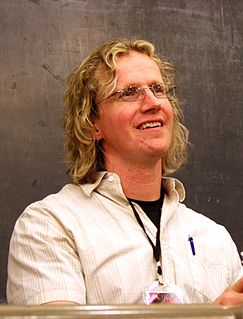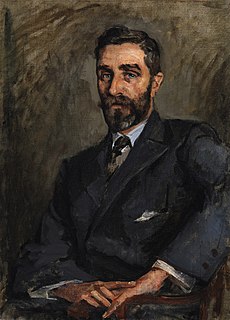A Quote by Leo Tolstoy
Freethinkers are those who are willing to use their minds without prejudice and without fearing to understand things that clash with their own customs, privileges, or beliefs. This state of mind is not common, but it is essential for right thinking.
Related Quotes
If loyalty is, and always has been, perceived as obsolete, why do we continue to praise it? Because loyalty is essential to the most basic things that make life livable. Without loyalty there can be no love. Without loyalty there can be no family. Without loyalty there can be no friendship. Without loyalty there can be no commitment to community or country. And without those things, there can be no society.
Without those forerunners, Jane Austen and the Brontes and George Eliot could no more have written than Shakespeare could have written without Marlowe, or Marlowe without Chaucer, or Chaucer without those forgotten poets who paved the ways and tamed the natural savagery of the tongue. For masterpieces are not single and solitary births; they are the outcome of many years of thinking in common, of thinking by the body of the people, so that the experience of the mass is behind the single voice.
In the East we call this state meditation: no belief, no thought, no desire, no prejudice, no conditioning - in fact, no mind at all. A state of no-mind is meditation. When you can look without any mind interfering, distorting, interpreting, then you see the truth. The truth is already all around; just you have to put your mind aside.
... an essential feature of a decent society, and an almost defining feature of a democratic society, is relative equality of outcome - not opportunity, but outcome. Without that you can't seriously talk about a democratic state... These concepts of the common good have a long life. They lie right at the core of classical liberalism, of Enlightenment thinking... Like Aristotle, [Adam] Smith understood that the common good will require substantial intervention to assure lasting prosperity of the poor by distribution of public revenues.
Just understand, don`t choose - don`t choose even choicelessness. Simply understand the whole situation: that whatsoever you choose, whatsoever you do, will come out of the calculating mind. It cannot be the real thing. Your mind can only produce dreams, it cannot produce the truth. Truth cannot be produced, nobody can produce it. It is there; it has to be seen. Nothing has to be done, just a look is needed - a look without any prejudice, a look without any choice, a look without any distinctions.
When there is no mind, you are in yoga; when there is mind you are not in yoga. So you may do all the postures, but if the mind goes on functioning, if you go on thinking, you are not in yoga. Yoga is the state of no-mind. If you can be without the mind without doing any posture, you have become a perfect yogi. It has happened to many without doing any postures, and it has not happened to many who have been doing postures for many lives.
Those who read books cannot understand the teachings and, what's more, may even go astray. But those who try to observe the things going on in the mind, and always take that which is true in their own minds as their standard, never get muddled. They are able to comprehend suffering, and ultimately will understand Dharma. Then, they will understand the books they read.
People who excel at book learning tend to call up from memory what they have learned in order to follow stored instructions. Others who are better at internalized learning use the thoughts that flow from their subconscious. The experienced skier doesn't recite instructions on how to ski and then execute them; rather, he does it well "without thinking," in the same way he breathes without thinking. Understanding these differences is essential.




































